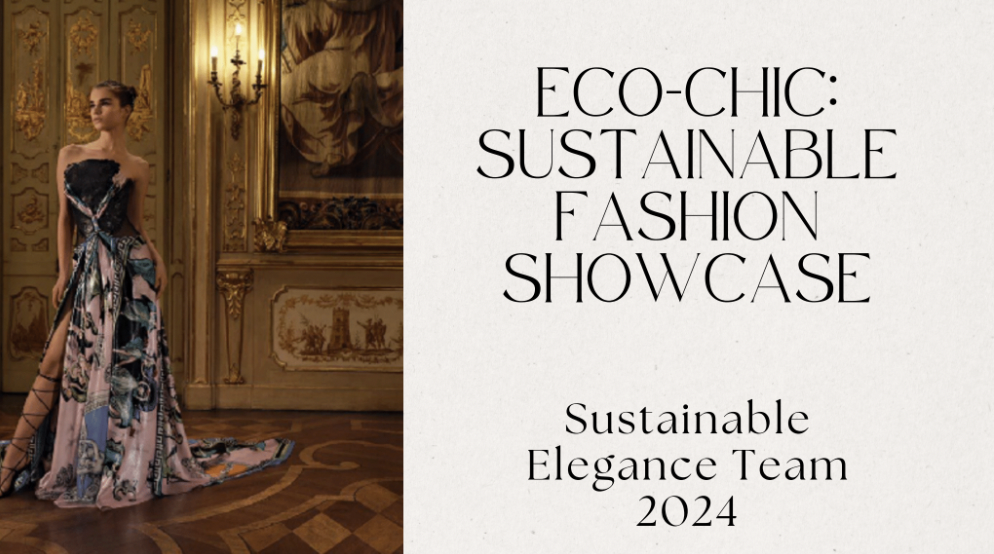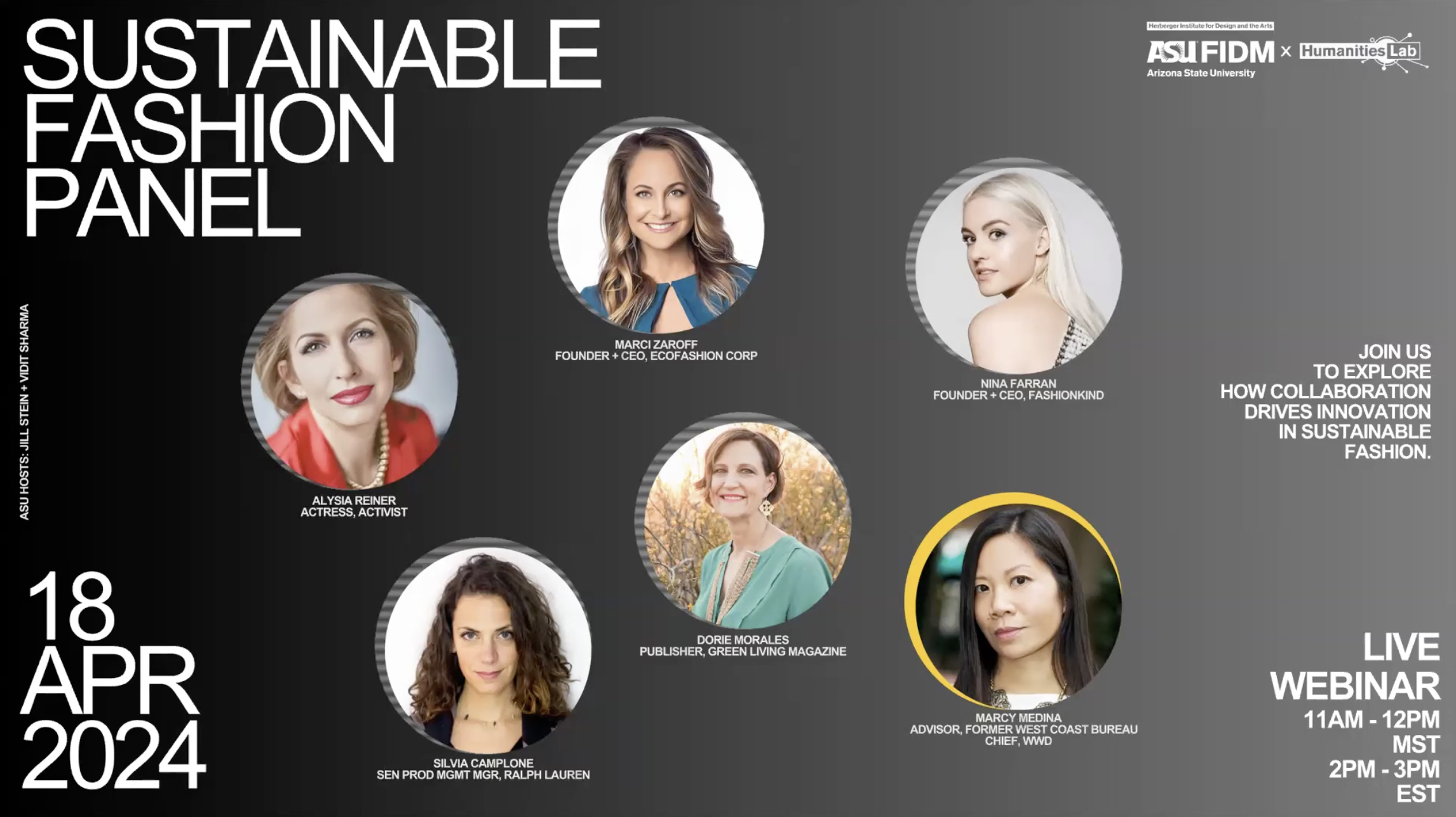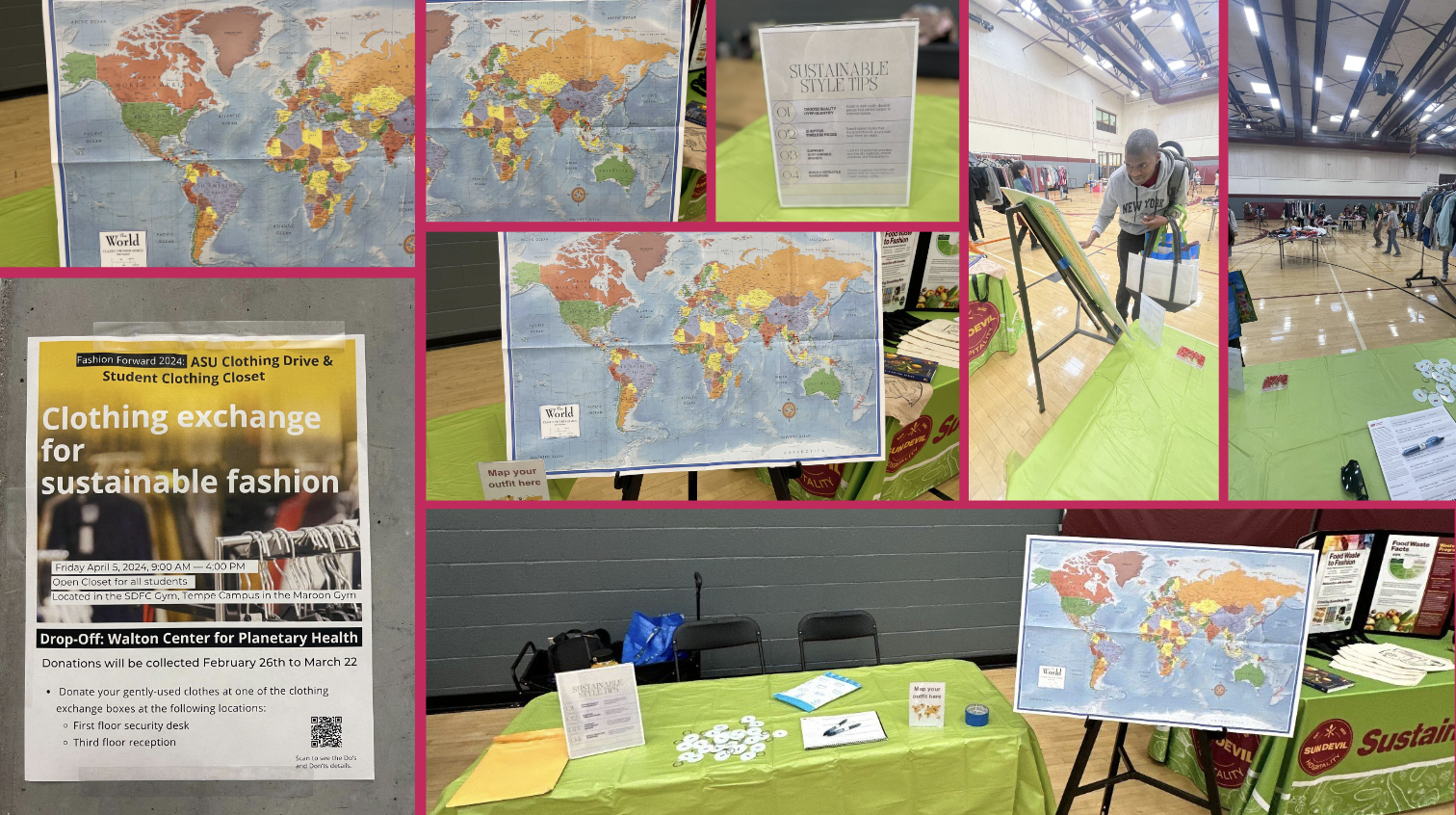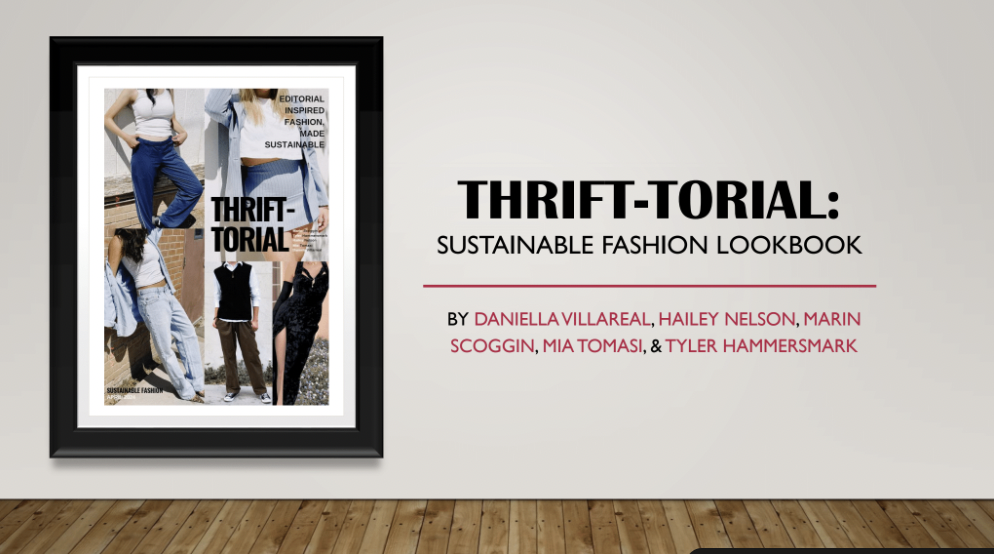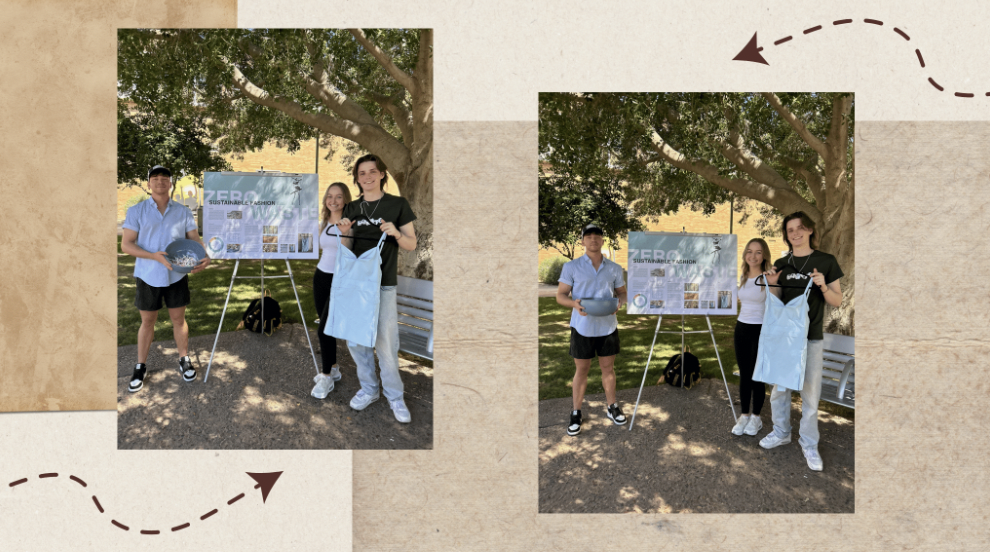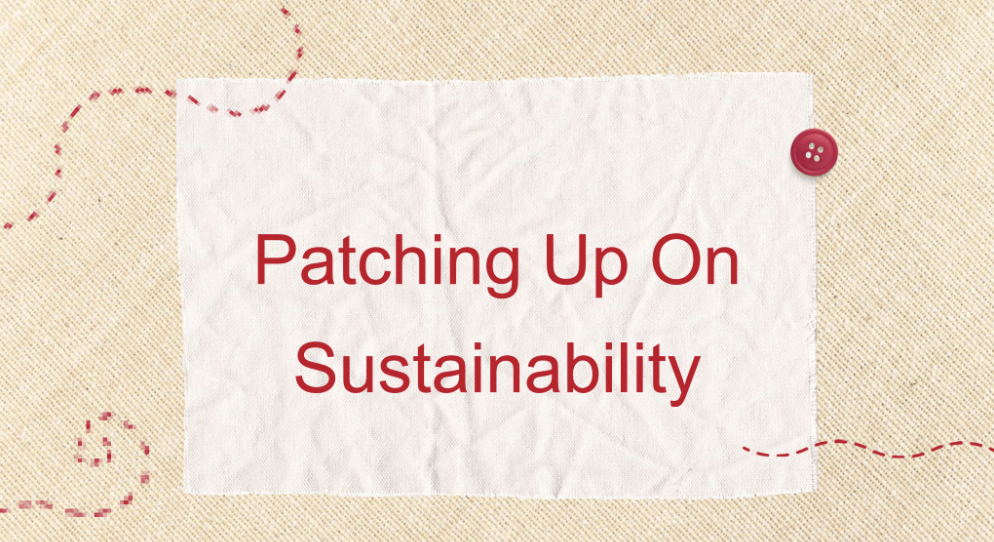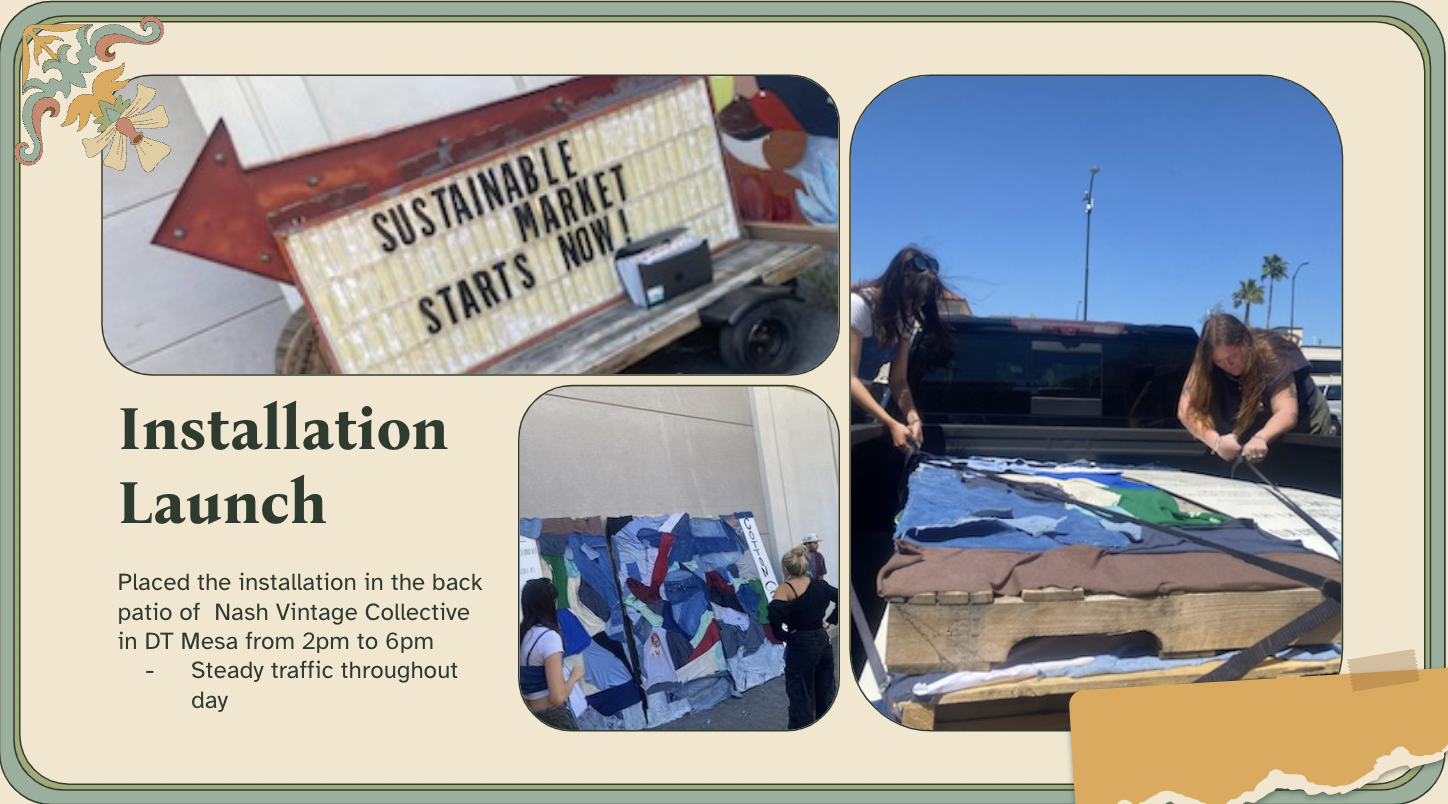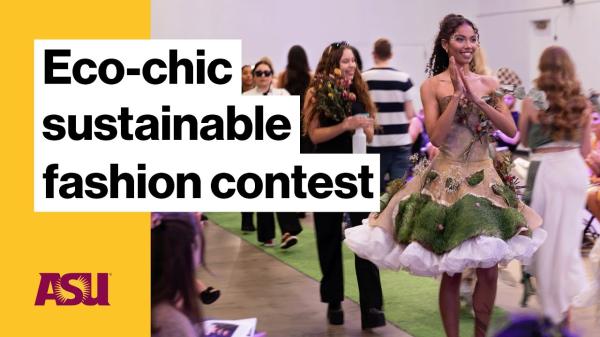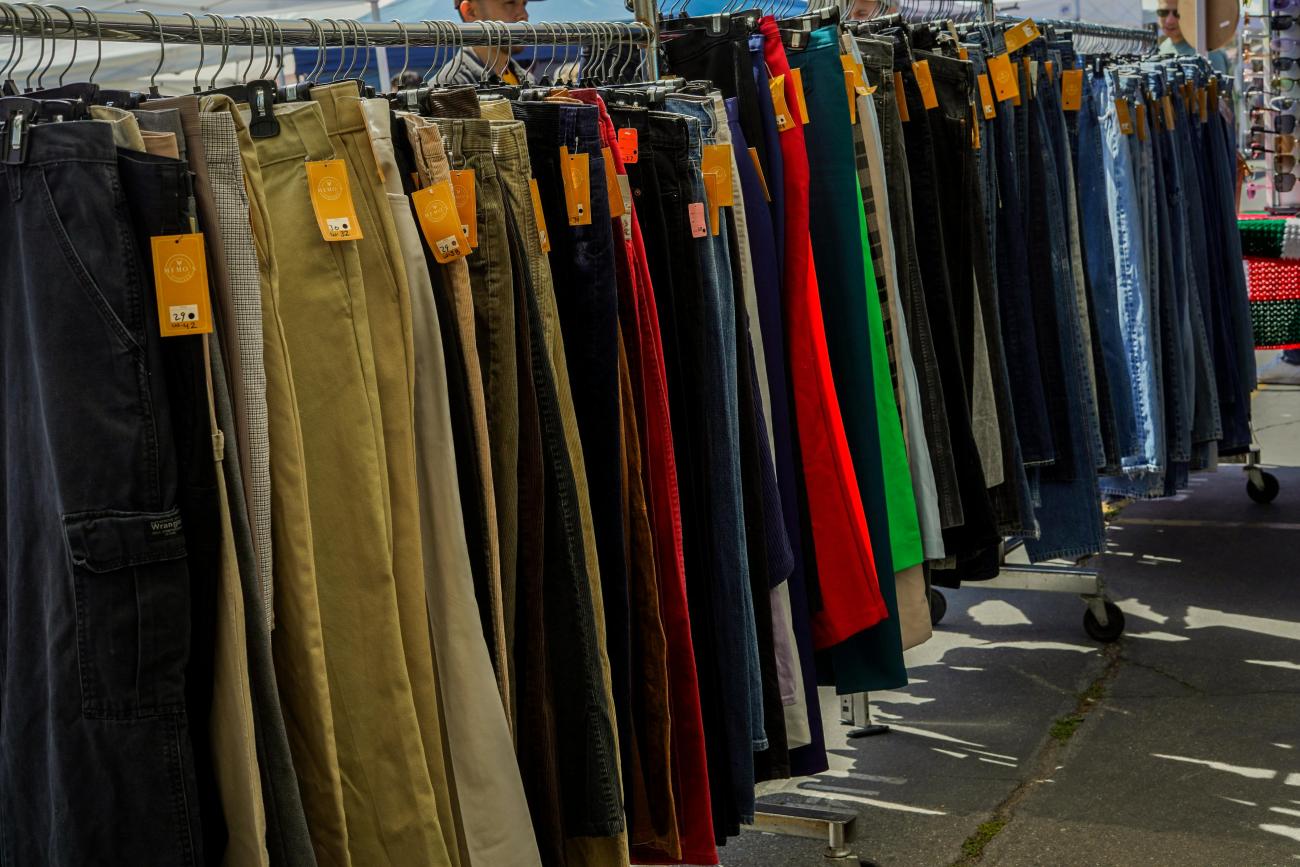
Sustainable Fashion Impact Outcomes
Sustainable Fashion
Students in the Sustainable Fashion Lab partnered with professors Enrico Minardi from the School of International Letters and Cultures and Jessica Kosak from the Fashion Institute of Design and Merchandising at ASU to propose solutions for creating more sustainable and equitable fashion supply chains and consumer practices. Through the investigation of case studies, current industry journals, webinars, and discussions with industry experts and workers, students proposed solutions for creating more sustainable and equitable fashion supply chains and consumer practices.
Student Outcomes
Eco Chic Fashion Contest
Coining themselves as "Sustainable Elegance," a group of students from Arizona State University organized Eco-CHIC: A Sustainable Fashion Showcase and Competition as their final project for the Sustainable Fashion Lab. The event featured a competition wherein student designers presenting their creations on the runway vied for the prestigious Eco-Chic award, a cash prize of $1000. Attendees had the opportunity to witness eco-friendly designs from emerging students and established designers on the runway, emphasizing the intersection of style and sustainability. Interactive exhibits showcased innovative materials, ethical production methods, and eco-friendly initiatives, educating the public about the environmental and social impact of fashion. Learn more about their project here and at the ASU News link below.
Sustainable Fashion Webinar
Two highly motivated students organized a live webinar on sustainable fashion featuring industry insiders Alysia Reiner, Marci Zaroff, Silvia Camplone, Dorie Morales, and Nina Farran. The webinar, which attracted over 200 online attendees, aimed to discuss the significance of sustainability in the fashion industry and strategies for integrating it effectively. Panelists shared insights on consumer behavior, the psychological mechanisms behind overconsumption, collaboration between brands and consumers, and integrating sustainability into operations. The conversation emphasized the importance of knowledge sharing, setting ambitious sustainability goals, and transforming supply chains to meet environmental and social criteria. View the webinar recording here.
Mapping Global Clothing Production
Student Paige Strickland directed her project at raising awareness around the global clothing production burden. At the Fashion Forward event, Strickland organized a Clothing Mapping Activity, allowing students to learn about the origins of their clothing. She hosted a table with a map, and participants were encouraged to mark where their clothes had been manufactured. The activity provided event attendees with an interactive way to understand the global scale of clothing production. Strickland also created educational materials to complement the activity. The result was a crowd-sourced map highlighting concentrated clothing production regions, emphasizing the widespread impact of the fashion industry on a global scale. View her final presentation here.
Thrift-torial: Sustainable Fashion Lookbook
A team of students produced a thrifted fashion lookbook to showcase that second-hand fashion can be stylish and trendy. They debunked the misconception that sustainable fashion is dull, highlighting that thrifted garments can be as attractive as those bought new. They drew inspiration from various media sources like movies, TV, and social media platforms such as Pinterest and Instagram. After selecting their outfits from second-hand wardrobes, they held a collective photoshoot and compiled the photos into an editorial-style lookbook. View their lookbook here.
The Plausibility of Zero Waste Fashion
Another Lab team of students explored the concept of zero-waste fashion by designing a dress sourced from sustainable materials. They aimed to educate others about sustainable fashion by sharing their project on campus. The used 100% cotton and considered organic linen as an alternative, emphasizing its biodegradability and compostability. The dress incorporated an adjustable mechanism using excess material from the cutting pattern. Their project demonstrated the importance of slow and intentional design processes in sustainable fashion production and showcased the feasibility of zero-waste methodologies. View their presentation here.
Patching Up on Sustainability
A group of students proposed upcycling as a sustainable solution to reduce clothing waste. They highlighted the staggering amount of clothing waste annually and its environmental impact, including landfill buildup and greenhouse gas emissions from incineration. They suggested community sewing classes, access to university and college resources, and online platforms like YouTube and TikTok as avenues for learning and promoting upcycling. Their aim is to increase the recycling rate of clothing and reduce reliance on landfills and incinerators, contributing to a more sustainable future. Learn more about their work here.
Eco Chic Fashion Contest
The Eco Chic: Sustainable Fashion Showcase was a captivating event that brought together nine talented student designers, each presenting their unique interpretation of eco-friendly fashion on the runway. With meticulous attention to sustainable materials and innovative design approaches, these designers captivated an audience of approximately 150 attendees. The fashion show served as a platform to highlight the intersection of style and environmental consciousness, inspiring both participants and spectators alike to embrace eco-friendly practices within the fashion industry. Through this event, the importance of sustainable fashion was underscored, fostering a greater appreciation for environmentally responsible design choices among fashion enthusiasts and industry professionals.
Media Coverage
ASU News. 'Living dress' wins Eco-Chic sustainable fashion contest. By: Mary Beth Faller (04/23/2024)
Collaborative Partners
- ASU Fashion Institute of Design and Merchandising
Note: The views presented or expressed on this page are those of the speaker or author only and do not necessarily represent the views of Arizona State University.
